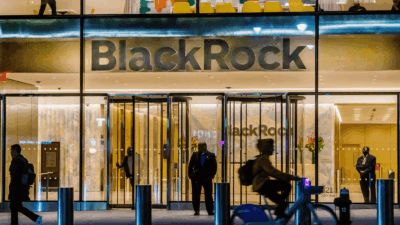AI-Built Indexes for Anyone: Cuter, Cheaper and Maybe Riskier
New artificial intelligence services may lure self-directed investors away from ETFs, and there are hazards that come with that.

Sign up for exclusive news and analysis of the rapidly evolving ETF landscape.
Is anything safe from AI?
Investing could soon become more interesting, at least for anyone willing to give a few prompts to an artificial intelligence service recently introduced by broker-dealer Public. With a few clickity clackities on the keyboard, curious investors can make their own indexes, which Public says they will be able to track shortly. The service not only assembles an index, but also gives it a cute name and backtests performance compared with broader market returns. That, and it avoids the fees for mutual funds, ETFs, or direct indexing that people would otherwise have to pay. But are those features enough to threaten a slice of the more than $10 trillion-dollar ETF business?
“AI-driven platforms like Generated Assets and Composer are definitely catching more attention — and yes, I do see them starting to shape how younger, tech-comfortable clients want to invest,” said Daniel Milks, founder of Fiduciary Organization and Woodmark Advisors. “We’ve already seen clients jump into algorithm-driven strategies without understanding risk exposure, correlation, or tax implications. These platforms can easily steer assets away from well-structured ETFs or diversified funds and into hyper-niche positions that look good in a backtest but fall apart in real life.”
Felt Cute, Might Invest Later
Axios’ Felix Salmon pointed out a flaw in backtesting indexes — that the current weightings of each stock in a creative index will not match what they were years ago, which can lead to wildly inaccurate performance figures. And, as any fund would disclose, past performance doesn’t guarantee future returns.
ETF Upside played around with Generated Assets to build a few indexes:
- Breakfast Champions, which tracks cereal producers and distributors, reportedly returned 58% since 2015, compared with 148% for the S&P 500.
- Sole Providers: Shoe companies returned 175% over 10 years.
- Remote Work Champions: Companies with such policies reportedly returned 594% since 2015.
- CEOs Starting with Q: This broke the system, which couldn’t find any public companies led by people whose first names start with the letter Q.
Human Nature: Whether curious investors experience more perks or pitfalls from AI-enabled strategies may depend on their experience and skill. “For thoughtful investors who use these tools wisely, it can enhance decision-making and improve outcomes. But the very same tools, when misused or misunderstood, can accelerate mistakes,” said James Vermillion, founder of Vermillion Private Wealth. “AI can assist in constructing portfolios, but it won’t immunize anyone from panic, greed, or short-term thinking.”











